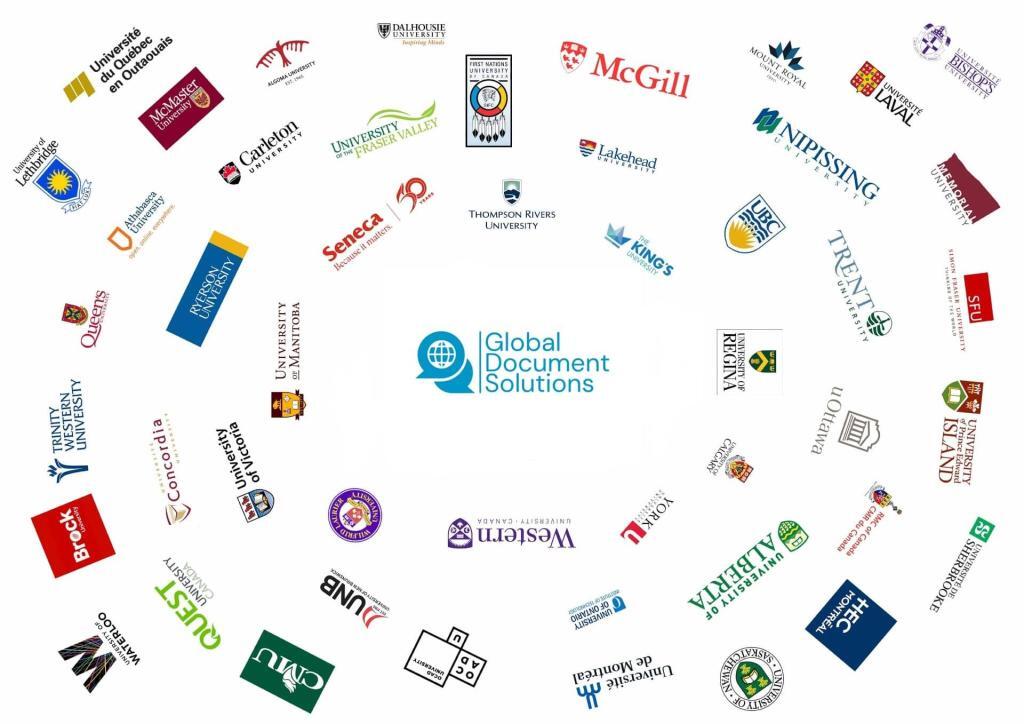
Apostille or Authenticate Teacher's Certificate – Education Degree - TESOL
If you have a new teaching assignment in a foreign country, congratulations! Moving to a new country and starting a new job can be challenging, but don't worry - our team is here to help make sure your documents are in order for your new employer. You may be asked to get apostille or authentication and legalization. stamps for your diploma, degree, transcripts, and/or marriage certificate.
Why You May Need It
Obtaining an apostille or going through the process of authentication and legalization for documents such as a Canadian Teacher Certificate, Education Degree, or TESOL certificate is essential for several reasons, especially if you plan to teach or use these credentials outside of Canada.
- International Recognition: If you intend to teach or work in a country that is a member of the Hague Apostille Convention, an apostilled document is often required. This process verifies the authenticity of your educational documents, ensuring they are recognized and accepted internationally.
- Employment Requirements: Many international schools and educational institutions require verified credentials to ensure the quality and legitimacy of their staff's qualifications. Apostilled or authenticated documents meet these stringent requirements, showcasing your qualifications as genuine and recognized by Canadian authorities.
- Immigration Processes: If you're planning to immigrate or acquire a work visa in another country, apostilled or authenticated educational documents are often a key part of the application process. These documents provide proof of your qualifications and are a necessary step in verifying your eligibility for certain visas or residency programs.
- Professional Credibility: Having your credentials apostilled or authenticated adds a level of credibility to your professional profile. It demonstrates that you have undergone the necessary steps to validate your qualifications, which can be particularly important in competitive job markets.
- Legal Requirements: In some cases, the legalization of documents is a legal requirement for them to be considered valid in the destination country. Without this process, your qualifications may not be recognized, which can lead to significant professional and legal complications.
- Ease of Process: While the process of obtaining an apostille or going through authentication and legalization can seem daunting, it ultimately simplifies your professional journey abroad. Once completed, these documents are readily accepted in most countries, reducing bureaucratic hurdles and streamlining your ability to work internationally.
In summary, the apostille, authentication, and legalization of Canadian teaching and educational credentials are crucial steps for educators seeking international opportunities. These processes ensure that your qualifications are recognized and respected worldwide, opening doors to global teaching and professional experiences.

How do I get an Apostille for a Canadian Teachers Certificate?
With Canada's recent accession to the Hague Apostille Convention on January 11, 2024, the process for authenticating and legalizing Canadian documents for use abroad has become significantly streamlined and simplified. This development holds particular importance for educators and professionals in the teaching sector.
Before Canada's participation in the convention, Canadian documents, such as Teacher's Certificates, Education Degrees, or TESOL (Teaching English to Speakers of Other Languages) certificates, required a more cumbersome process known as "legalization" for use in member countries. This process often involved multiple steps, including validation by the Canadian Ministry of Foreign Affairs and then by the consulate of the destination country.
However, now that Canada is a part of the Hague Apostille Convention, obtaining an Apostille for these educational documents has become a more straightforward process. An Apostille is essentially an internationally recognized form of authentication. Once a Canadian educational document is apostilled, it is readily accepted in any of the other member countries of the convention without the need for further authentication or legalization.
This change is particularly beneficial for educators seeking employment abroad. For instance, if a Canadian teacher wishes to work in a country that is also a member of the Hague Apostille Convention, they can now get their Teacher's Certificate, Education Degree, or TESOL certificate apostilled in Canada. This apostilled document will be recognized in the destination country, thereby simplifying the process of verification and acceptance of their qualifications.
How The Apostille Process Works
The process of obtaining an Apostille typically involves submitting the original document to a designated authority in Canada, which will then verify the document's authenticity and affix the Apostille. This process confirms that the document is legitimate and that it has been issued by a recognized institution in Canada, making it valid for use in other member countries of the convention.
In summary, Canada's entry into the Hague Apostille Convention significantly eases the process of authenticating educational documents for Canadians planning to work in member countries. This move is expected to facilitate international career opportunities for Canadian educators and streamline the administrative procedures involved in working abroad.
Teachers or TESOL Certificate Authentication and Legalization for Non-Apostille Countries
1
Step: 1 Authentication
Teacher certificates come in many different forms, which can make it difficult to know if you have the right one. We can help you determine if your certificate meets the requirements for authentication by using our quote request and uploading your certificate for review by one of our experts.
Most education documents, such as a teaching certificate, TESOL certificate, or professional designation certificate, must be notarized before they can be authenticated by the provincial authority or Global Affairs Canada. However, not all TEFL and TESOL certificates issued by all institutions are recognized by the Canadian government and can be authenticated by Global Affairs Canada. To find out if your TEFL or TESOL certificate is valid for authentication, click here.
Canadian university degrees and transcripts from recognized institutions must also be signed and have an embossed seal from the university or college. They can be authenticated as the original or as a notarized copy made by a Canadian Notary Public.
It's important to start the authentication process as soon as possible, as processing times are longer than ever at Global Affairs Canada. You can find out their current processing time here.
2
Step 2: Legalization
The second step is attestation/legalization at the embassy or consulate of the country where you will be teaching. The embassy/consulate will charge a fee for legalization services, and some may have additional requirements and processing times that change frequently. In some cases, official transcripts may also be required, which must be signed by the university registrar's office and sent directly to the consulate.
When you use our legalization services, we take care of everything, making sure the process is done correctly and meets your timeline. We can return the authenticated and legalized documents to you or send them directly to your new employer.
How Does Using Global Document Solutions Services Benefit You?
Seeking professional assistance for the apostille or authentication of Canadian Teachers' Certificates or TESOL (Teaching English as a Second Language) Certificates offers substantial benefits. Our experts in this field are equipped with the comprehensive knowledge of these specific procedures, ensuring that your documents meet all legal standards. This attention to detail significantly reduces the risk of errors and delays, which is particularly important for documents required within strict timelines. When these processes are not managed by specialists, there's a greater chance of encountering issues such as incorrect documentation or overlooking essential steps, resulting in extended processing times or potential rejection. In matters of official certification, precision and strict adherence to protocols are crucial. By employing professional services, you gain the expertise necessary to navigate these complexities, ensuring your peace of mind that all aspects of your certification process are in capable hands. Consult one of our experts today to ensure your teaching certification is processed accurately and efficiently.

